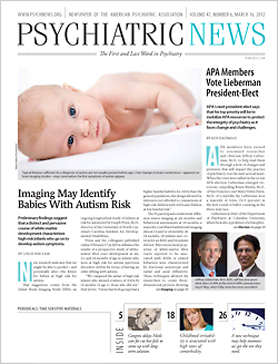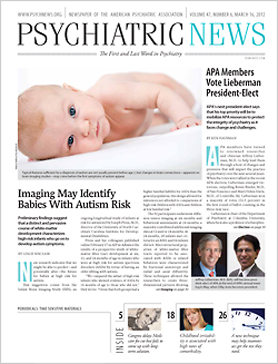Irritability annoys researchers and clinicians.
While it is a common symptom, irritability is also seriously understudied, Christen Deveney, Ph.D., told listeners last December at a lecture at the National Institutes of Health in Bethesda, Md.
Deveney noted that irritability is a criterion for many diagnoses: bipolar disorder, depression, oppositional defiant disorder, anxiety disorders, pervasive developmental disorders, attention-deficit/hyperactivity disorder, and conduct disorder and is an associated feature of other disorders.
“There’s a great deal of overlap, so understanding irritability can help us understand high rates of comorbidity,” said Deveney.
Current National Institute of Mental Health (NIMH) research domain criteria call for focusing on specific symptoms—like irritability—to increase understanding of the underlying neurobiology of very complex heterogeneous psychiatric disorders.
Irritability is a low threshold for experiencing frustration, which is defined as a negative affect in response to blocked goal attainment, said Deveney, a postdoctoral student in Ellen Leibenluft, M.D.’s lab in the Section on Bipolar Spectrum Disorders at NIMH.
As any parent knows, frustration is a normal part of development and can help a child learn to cope with the surrounding world. Children with impairing levels of irritability, however, frequently develop depression and anxiety later, said Deveney. Irritability also plays a pivotal role in the controversy over the diagnosis of bipolar disorder in young people and so has major diagnostic and treatment implications.
The Problem: ‘Kids Wise Up’
However, designing experiments to study frustration and irritability in the lab is challenging. Tests must keep children engaged long enough to accumulate data, an especially tricky problem when scanning the subject’s brain.
“It’s hard to get an adequate number of trials, because kids wise up.” said Deveney.
There are ethical issues too, since the tests involve deception. Researchers must take the time to explain the process thoroughly to parents to get valid consent for their child’s participation.
Ultimately, Deveney was able to recruit 19 children with severe mood dysregulation (SMD) and 23 healthy controls for her initial study. She began by giving truthful feedback during testing. Both groups of children got nearly all of the responses correct then.
Once children were in the scanner, however, she began rigging the answers so that only 40 percent of the correct answers were scored as correct, which frustrated both groups of children, and led to observed frustration in both groups. In some tests, Deveney increased pressure on the subjects even more by saying (falsely) that they were answering too slowly.
Both groups grew frustrated, but the children with SMD exhibited more frustration, because of their decreased attention flexibility.
The scanner data revealed that the brains of SMD subjects, when frustrated, showed a decrease in activation in the parietal region (associated with spatial attention) as well as in the amygdala and the insula, which are involved in emotions.
Frustration decreased spatial attention flexibility by decreasing the ability of the participants to disengage from the cue on the test screen that predicted the target when cue and target were in discordant positions, an effect that was stronger in the subjects with SMD, said Deveney.
More Groups to Be Added
In the future, she plans to add more comparison groups with different psychiatric conditions and also investigate the neural circuitry of irritability and frustration under nonfrustrating conditions.
Deveney would also like to explore the interpersonal nature of irritability. Is irritability a product of interaction with a parent or a teacher or is it a more impersonal aspect of frustration?
“We hope that understanding what’s happening in the brains of these young children will ultimately help us design more effective treatments,” she concluded. Those treatments could be pharmacological or might involve training patients to have better cognitive control of attention in conditions of frustration.


